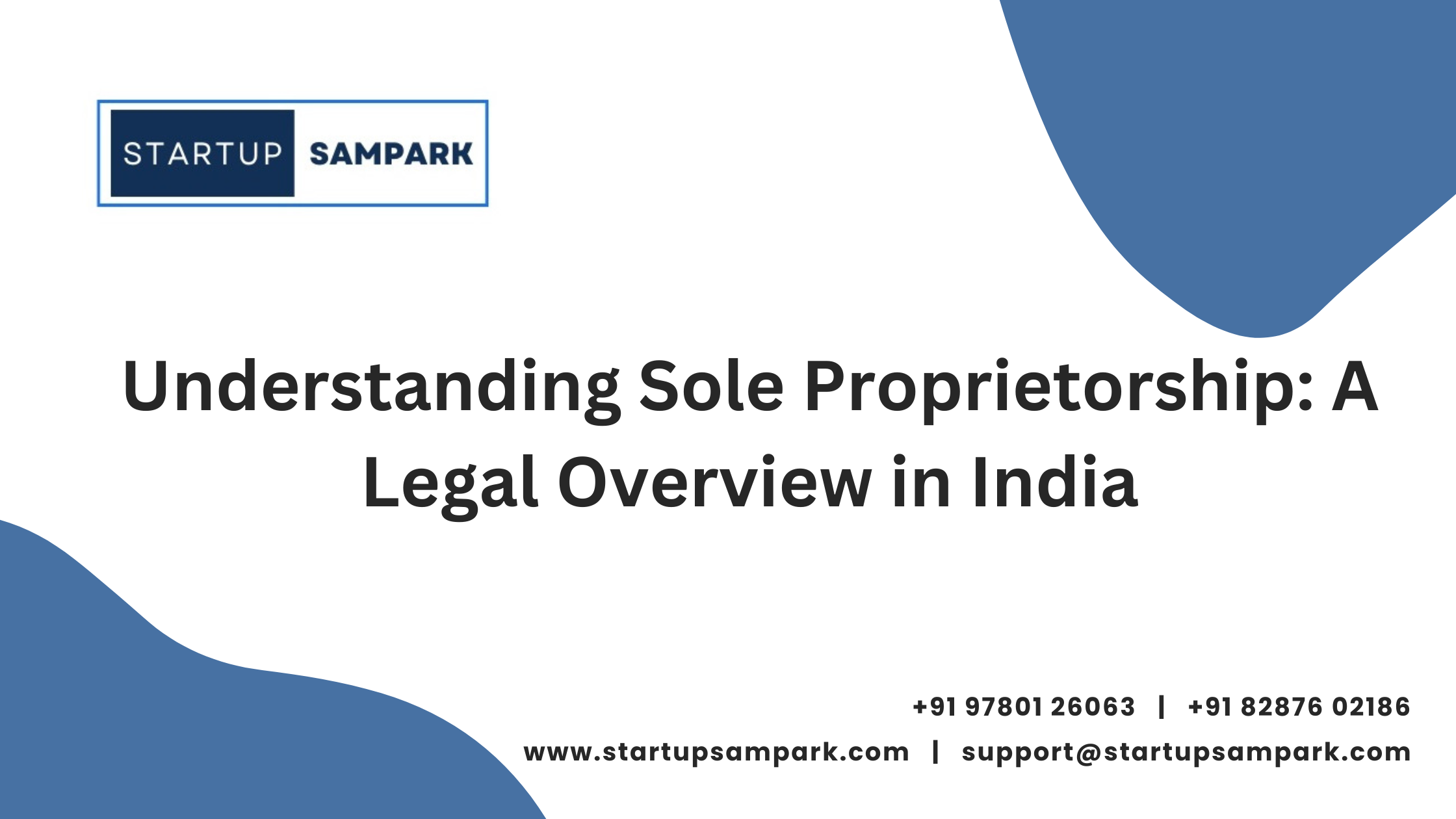Understanding Sole Proprietorship: A Legal Overview in India
Introduction to Sole Proprietorship in India
A sole proprietorship is one of the simplest and most common forms of business structures in India. It is a business owned and operated by a single individual, who is solely responsible for the operations, management, and liabilities of the business. This structure is widely favored by small business owners, freelancers, and online entrepreneurs due to its ease of formation, minimal regulatory requirements, and complete control over business decisions. Despite its simplicity, it also involves unlimited liability, meaning the owner’s personal assets can be used to settle business debts.
Formation and Registration of Sole Proprietorship
Forming a sole proprietorship in India is relatively straightforward and involves minimal legal formalities. Technically, no formal registration is required to start a sole proprietorship. However, depending on the nature of the business, the owner may need to obtain certain licenses or permits. For example, businesses involved in food, health, or retail sectors must register for licenses such as the GST registration, FSSAI license, or trade license. While a sole proprietorship can operate without a distinct legal entity, registering the business under a name (other than the owner’s name) requires filing a “Doing Business As” (DBA) name with the local authorities.
-
 Startup Registration (DPIIT Recognition)₹8,850.00
Startup Registration (DPIIT Recognition)₹8,850.00
Taxation and Compliance Requirements
A sole proprietorship is taxed as an individual entity, meaning the income generated by the business is treated as the personal income of the proprietor. The business is not considered a separate taxable entity. The owner must file income tax returns under the Income Tax Act and pay taxes based on the income earned. The proprietor is also required to comply with GST regulations if the annual turnover exceeds ₹40 lakhs (₹20 lakhs for service providers). Sole proprietors are also eligible to claim certain tax deductions on expenses directly related to the business, such as office rent, business-related travel, and utilities.
Liability and Financial Risk
One of the primary disadvantages of a sole proprietorship is the issue of unlimited liability. Since there is no legal separation between the owner and the business, the proprietor is personally liable for all business debts, financial obligations, and legal actions. This means that if the business incurs losses or faces lawsuits, the owner’s personal assets, such as their home, savings, or other possessions, could be at risk. This makes sole proprietorships less attractive for businesses that involve significant financial risk or require large amounts of capital.
Advantages of Sole Proprietorship
Despite the risks associated with unlimited liability, a sole proprietorship offers several advantages that make it an appealing option for many entrepreneurs. These benefits include complete control over business decisions, minimal regulatory compliance, and low operational costs. The owner has the freedom to manage the business as they see fit without the need for consensus or consultation with partners or shareholders. Furthermore, the process of winding up a sole proprietorship is relatively simple and involves fewer legal steps compared to other business structures, which is especially important for small business owners or entrepreneurs starting with limited resources.
Limitations and Challenges
While the sole proprietorship structure is advantageous in terms of simplicity and control, it comes with certain limitations. The most significant challenge is the difficulty in raising capital. Since a sole proprietor’s personal credit and assets are tied to the business, obtaining loans or attracting investors can be challenging. Additionally, the business may struggle with continuity. If the proprietor becomes ill, passes away, or decides to close the business, it ceases to exist. As a result, sole proprietors may find it difficult to scale or expand their businesses in the long term. Despite these challenges, for small-scale operations or startups, a sole proprietorship remains an attractive and easy-to-manage option.
Startup, India
-
 Startup Registration (DPIIT Recognition)₹8,850.00
Startup Registration (DPIIT Recognition)₹8,850.00















Post Comment